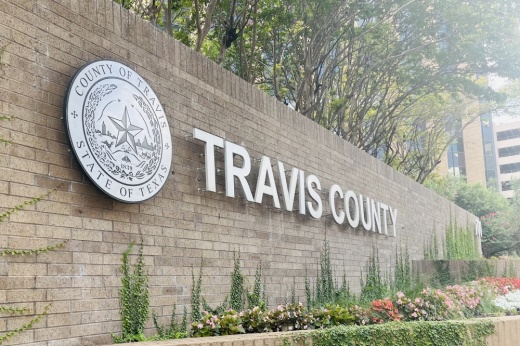Budget explained
Among various county responsibilities, running the county’s judicial system is one of the major roles under county authority, according to the Texas Association of Counties.
Amid growing public frustration and a lawsuit filed in recent months, county officials' prioritization of legal representation following an arrest appear to address some concerns, though efforts toward legal and law enforcement reform have been ongoing.
Over the past year, the county has conducted CAFA test shifts, borrowing judges and lawyers from various jurisdictions, including the city of Austin. The CAFA program provides legal representation to individuals unable to afford it during their initial court appearance after arrest.
Travis County Commissioners have set aside $15.5 million to fully implement the program.
The funding would cover two new shifts of legal services during initial court appearances in which jail time and bail amounts are determined.
CAFA advocates have reported that having a lawyer present during the first appearance in front of a judge can improve outcomes.
Bradley Hargis, executive director of the Capital Area Private Defender Service, a nonprofit overseeing much of Travis County's indigent defense, testified to City Council on Aug. 29 that magistration is one the most important steps for determining client outcomes.
Without the benefit of counsel, he said many clients today are going before a judge without fully understanding the process, and can see outcomes that lead to a loss of housing, employment, belongings and more.
The county is currently working to fill an estimated 39 full-time positions for the first phase of CAFA, with a goal of implementation Oct. 1—which would operate seven days a week from 2-11 p.m.
Commissioners also approved another $1.8 million in indigent defense and legal fees, which includes additional resources for court-appointed attorney fees as well as additional staff needed in the county’s public defender’s office.
What else?
The county’s budget has also allocated various funds towards mental health initiatives, which includes funding for a diversion program.
The Crisis Care Diversion program is geared to keep people with mental illness out of jail.
The program follows a March 2023 report that revealed Travis County has a significant number of individuals with mental illness being arrested for nonviolent offenses and repeatedly cycling through the jail system.
An estimated 40% of all incarcerated individuals in Travis County Jail suffer from mental illness, according to previous meetings held by county officials on the subject earlier this year. That number jumps to 70% to 80% when accounting for people with substance abuse disorder.
This fiscal year’s budget outlines a little more than $16 million in reserves for the diversion facility and program. Other mental health-related justice budget allocations include:
- $1.19 million towards early case review of mental health expedited docket and new, permanent resources and staff for family violence and protective order programs
- $2.7 million for continuing mental and behavioral health support services to serve individuals with serious mental health conditions, including ongoing personnel funding to continue work related to the opioid use
- $1 million in ongoing resources to increase the mental health services contract with Integral Care and expand the contract to provide additional services, reducing wait times for care for jail inmates
“The investments approved in [this year's] budget reflect Travis County’s deep commitment to supporting our community,” Travis County Judge Andy Brown said in a statement. “From funding Counsel at First Appearance to expanding mental health services and enhancing our county parks, we are making critical investments that promote justice, wellness, and access to green spaces. This budget is a reflection of our shared values and dedication to building a stronger, more inclusive Travis County.”
Other county responsibilities and budget allocations include public safety, facilitating elections, registering voters, maintaining records, building and maintaining roads, providing emergency services, providing health and health safety services, collecting property taxes, and overseeing vehicle registration.
Taking a step back
On Sept. 24, Commissioners approved a $1.97 billion budget for FY 2024-25, with an estimated $75.8 million awaiting voter approval in the November election.
County officials previously approved the maximum tax rate increase for the next year, now set at $0.3195 per $100 valuation to support much of the budget.
However, the county has proposed a 2.5-cent increase, exceeding the no-new-revenue tax rate, to support affordable child care. This will also appear on November ballots.
If the proposed child care tax increase is approved by voters, the average homeowner could see their taxes rise by $288 in total. This increase combines the already approved maximum rate, which does not require voter approval, with the proposed child care tax rate increase.
Dates to remember:
- Last day of voter registration: Oct. 7
- Early Voting: Oct. 21-Nov. 1
- Election Day: Nov. 5





